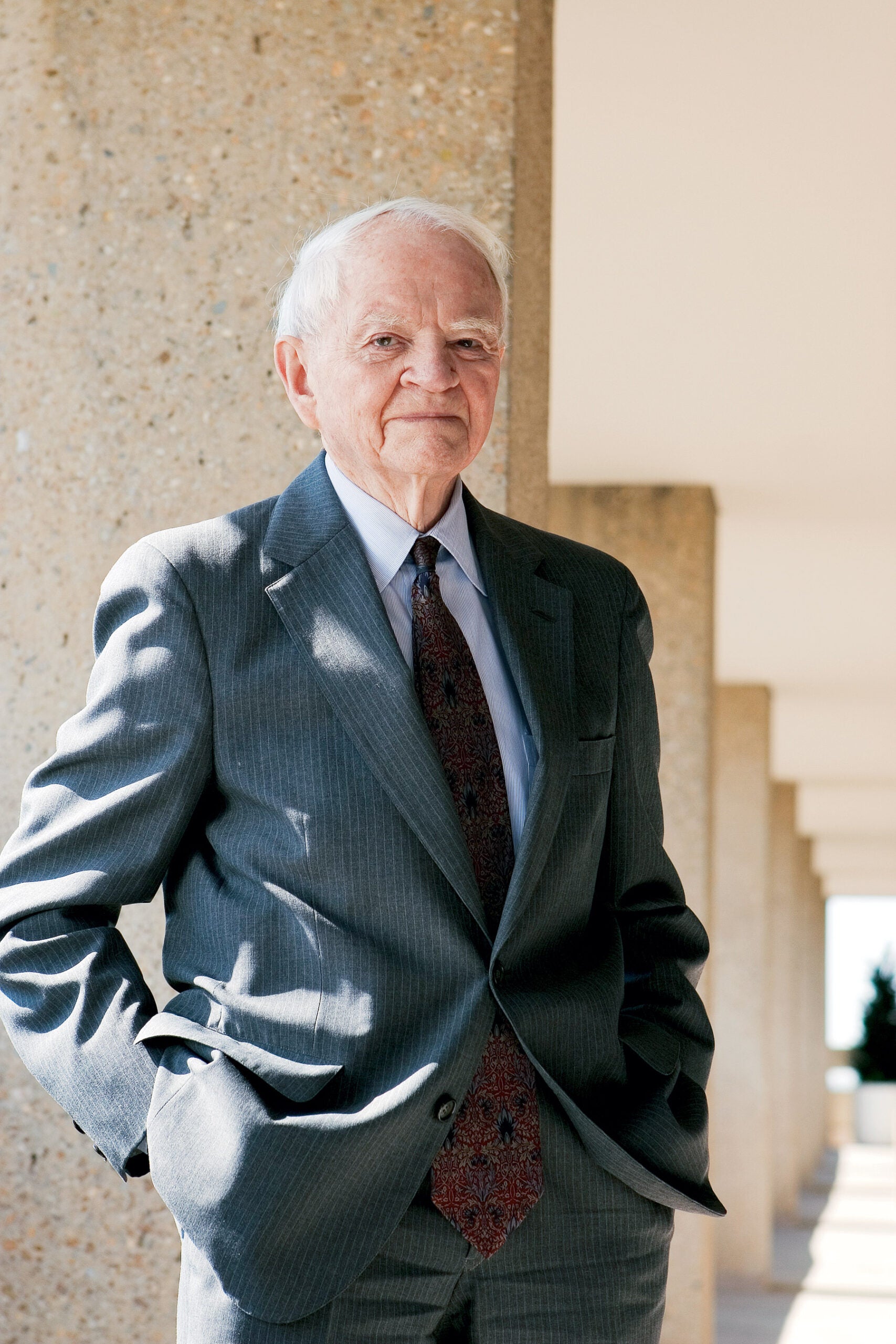Revenue Man
Donald Alexander ’48 is a partner at Akin Gump Strauss Hauer & Feld in Washington, D.C., where he has a wide-ranging tax practice. He is a member of the HLS Visiting Committee and the Washington, D.C., Setting the Standard Campaign Committee.
You came to Harvard Law School after serving in World War II. What was it like to go from real combat to combat in the classroom?
Well, it was not the easiest thing in the world. At that point the Harvard professors were quite intimidating. Having a last name that begins with A, I was the first one to be called on in the first class. I rose to my feet and gave the citation of Pierson v. Post to [former] Dean Pound. He bawled me out by saying, “Young man, I know the citation!” I said, “Sir, I know you know the citation and you know the case. Why did you ask me to tell you about it?” That didn’t go over very well.
You served as commissioner of the Internal Revenue Service in the 1970s. What was that like?
Almost pure hell.
Why?
During Watergate, all government agencies were under attack–rightly so, in some cases. The IRS, of course, had more contact with more people than any other agency, and had the difficult job of separating people from what they often thought was their own money. The IRS was under particular attack, called an evil organization and part of the Nixon political apparatus. And I was determined to help the IRS get through that and prevent any misuse of IRS people and powers.
Did you have any interactions with President Nixon?
Sure, he tried to fire me three times. The third time was just a gesture, however. All I had to do was go and be bawled out by Alexander Haig, who was then the White House chief of staff. But the first time was real, and my boss, George Shultz, a wonderful guy and secretary of the Treasury, told me that if I was fired, he was going to quit. I told him that would be a great loss to the nation. Nixon eventually calmed down, and I was not fired and George Shultz did not quit.
Given all of the interest groups that have a stake in the current tax system, is it possible to enact reform that simplifies the tax code?
It’s going to be very, very difficult unless everything breaks the right way. No matter what you do to revise the code, you’re going to have some winners and some losers. The losers are going to complain vociferously, and the winners are going to smugly stay quiet.
You’ve been a strong supporter of the law school. People have many reasons for giving to Harvard. What’s yours?
I’m trying to promote tax research. I think Harvard should be the center of tax research. While academic research isn’t always taken into account in the heat of the politics down here [in Washington], sometimes it is. I want Harvard to be the leader in producing sound federal tax policy and state tax policy, and also to promote a rational approach to international tax law, to make sure we don’t engage in possibly disastrous tax competition with other countries.
If you could give the Class of 2005 some advice, what would it be?
This advice might be largely ignored, but here it is: Plan to do some public service at some time in your career. I think we all owe it to our country and our communities. Don’t rush off and try to make as much money as you can as quickly as you can. The best chance [to work in public service] may be right after graduation.
